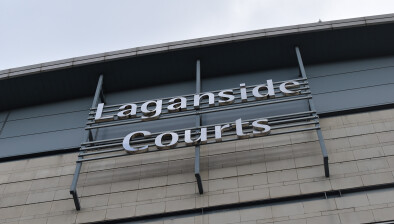NI High Court: Probation officer did not have powers to impose curfews

Northern Ireland’s High Court has found that several curfew provisions added to a probation order by a probation officer were unlawful. The court determined that such curfews could only be imposed by the court, and attempting to enforce them without a legislative basis or court order was unlawful.

About this case:
- Citation:[2023] NIKB 55
- Judgment:
- Court:NI High Court
- Judge:Mr Justice Adrian Colton
Background
In December 2022, the applicant was sentenced for common assault (indictable), contrary to section 47 of the Offences Against the Person Act 1861. This resulted in a combination order comprising a 100 hours’ community service order, and a three-year probation order.
Additional requirements were imposed by the judge, which included participation in various programmes of work, attending appointments arranged with his general practitioner and mental health professionals, avoiding consumption of alcohol or illegal substances with an agreement to submit to testing, and a requirement that he permanently reside at an address approved by his probation officer.
Significantly, the judge did not impose a curfew requirement. After he was sentenced, the applicant’s supervising probation officer prepared a Case Plan in respect of his supervision. The plan involved “additional order requirements”, which included multiple daily curfews.
This approach was challenged, and the application initially came before Mr Justice Huddleston on an emergency basis on 23 December 2022. The applicant sought to challenge two decisions of the Probation Board for Northern Ireland (PBNI) namely:
- the imposition of a curfew during the hours of 11:00am-11:30am, 3:00pm-3:30pm and 7:00pm-7:30pm, every day of the week; and
- refusal to allow the applicant to spend Christmas at his father’s address.
Leave was granted in respect of the curfew issue but refused in respect of the Christmas leave issue.
The Case Plan
The Case Plan prepared by the probation officer noted that the imposed curfews would be “subject to review when stability is demonstrated”. The applicant did not challenge a proposed curfew between 10pm and 8am, as it mirrored a housing accommodation condition imposed by the sentencing judge.
However, it was his case that the respondent did not have the power to impose the other curfew requirements. These curfews were not specified as an additional requirement imposed by the court, but they formed part of his Case Plan, which he was required to sign up to.
The Case Plan is a fundamental aspect to a probation order, and a rejection of a Case Plan can result in probation being revoked. The PNBI noted: “If JB is not content to sign his Case Plan PBNI will be making an application to the have the Order Revoked, or Amended, on the basis that we cannot safely manage the risk posed in the absence of the curfews.”
The respondent argued that the curfew during daytime hours allowed for the presentation of the applicant, an assessment of his condition vis-à-vis drugs and alcohol, monitoring his whereabouts, and keeping a check on who he was mixing with.
The respondent’s position was that it had discretion as to the measures put in place to supervise the conditions of probation. The curfew in this case was one such mechanism, which supported the supervision of the applicant’s adherence to the requirements set out in the combination order.
They argued that there was “no other, less intrusive means, to supervise the conditions imposed by the Court”.
Thus, the argument was that the curfew was not being imposed by the respondent, but rather, was a consequence of the supervision required under the combination order. The respondent characterised it as “an incident of supervision”.
The respondent further relied on the fact that the applicant consented to signing the Case Plan.
In response, the applicant highlighted that in a letter he was told “if he was not content to sign the Case Plan an application would be made to have the order revoked or amended”. It was argued that this was akin to putting “a gun to the applicant’s head”.
Consideration
The power to impose a curfew requirement is provided for in Article 35 of the Criminal Justice (Northern Ireland) Order 2008. A sentencing judge can impose a curfew requirement as part of an additional requirement when imposing a probation order.
The court accepted that under the Probation Board (Northern Ireland) Order, the duties of probation officers are stated in broad terms, which includes requirements to supervise, enquire, and perform such other duties relating to probation.
Further, the order made by the court in this case, in common with similar orders, did provide very general powers of supervision on the probation officers. The combination order provided that: “Defendants shall keep in touch with the probation officer in accordance with such instructions as may from time to time be given.”
Similarly, the court understood the thinking behind the decision to impose a requirement for a curfew, noting that there were “grounds to justify such a requirement”.
However, the issue for the court was whether the respondent could lawfully impose such a requirement.
Ultimately, the court was satisfied that the respondent did not have such a power. The respondent could only impose a curfew on an offender if they were subject to a probation order where such a curfew formed part of the order itself.
Further, it could not be argued that the proposed curfews were merely an “incident of supervision”. Put simply, a curfew could only be imposed by order of a court, as the “imposition of a curfew represents a significant restriction on a person’s liberty”.
The court also highlighted that the relevant legislation prohibits curfews for less than two hours. The court found that imposing such a curfew “without a legislative basis or as part of a court order is unlawful”.
The court also noted that the matter could potentially have been considered academic, given that the sentence had since been appealed. However, the court found it appropriate to deal with the substantive issue raised, given evidence received from the respondent which seemed to claim it did have the power to impose such curfew requirements as part of its supervisory role.
Conclusion
Ultimately, the court found that the respondent does not enjoy the power to impose these types of curfew requirements.
Given that the sentence is under appeal, no declaration was required.










